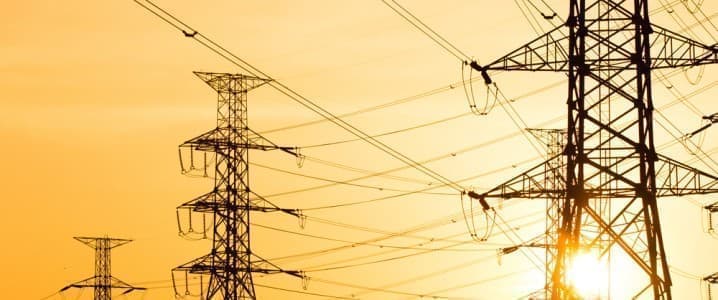Business
Azerbaijan’s Energy Market Reform Sparks Public Discontent

Azerbaijan is undertaking a significant reform of its domestic heating and electricity market, aiming to enhance the role of renewable energy while liberalizing the sector. The initiative, however, has drawn criticism due to the lack of public engagement and transparency surrounding the changes. A series of laws passed by Azerbaijan’s parliament in the spring are facilitating tariff reforms, particularly in electricity and heating.
The proposed reforms are set against a backdrop of rising public discontent. The government, which maintains strict control over political dialogue, has not scheduled public hearings or encouraged media discussions regarding the changes. This environment fosters a sense of apathy among citizens, many of whom feel disconnected from governmental decision-making. Such disconnect can lead to poor policy outcomes, raising concerns that the energy market overhaul may represent another lost opportunity to enhance the quality of life for the Azerbaijani populace.
The Azerbaijan Tariff Council, led by the economy minister, is responsible for setting prices for electricity, gas, heat, and fuel. This process occurs behind closed doors, involving a small group of officials from various ministries. In more open societies, public engagement in energy policy can significantly influence decisions, often prompting officials to justify their actions and remain accountable. In contrast, the lack of civic participation in Azerbaijan limits such dynamics, making it critical to examine how energy prices are established.
Electricity demand growth in Azerbaijan fell to just 1 percent in 2023, down from over 4 percent in the previous year. This decline comes after notable increases in home energy rates announced by the Tariff Council in October 2021. At that time, the council raised residential gas prices from 10 to 12 gapiks per cubic meter and adjusted electricity tariffs for different consumption brackets. Officials attributed these increases to rising global energy prices.
In January 2025, the Tariff Council approved another round of increases, described in state media as “slight,” yet perceived as substantial by residents. Increases ranged from 5 percent to 15 percent depending on usage, with average household electricity tariffs expected to rise by approximately 7.8 percent. Again, officials cited gas costs as the rationale, despite Azerbaijan’s rising natural gas output and its status as a significant exporter to the European Union, Turkey, and other nations.
A new regulation approved by the Azerbaijani parliament in June introduces a fixed monthly fee for natural gas usage, set to be implemented gradually starting in 2026 and fully by 2028. This means consumers will incur charges even if they do not use gas, impacting owners of vacant properties. Opposition member Tofig Yaqublu, currently imprisoned, argues that the price hikes lack economic justification and suggests that corruption may be a driving factor.
Countries with more active civic participation often see public input and protests prompting authorities to reconsider policy decisions. For instance, in Turkey, a 50 percent increase in electricity and natural gas tariffs in 2022 led to immediate backlash, resulting in government concessions such as subsidies for low-income households. Similarly, in France, protests over rising electricity prices prompted President Emmanuel Macron to announce support measures aimed at reducing costs for businesses.
According to international price surveys for the first quarter of 2025, Azerbaijan’s residential electricity price stands at approximately $0.05 per kWh, which is lower than in neighboring countries like Georgia ($0.068), Turkey ($0.066), and Russia ($0.062). In contrast, Iran’s heavily subsidized electricity costs households virtually nothing at $0.003 per kWh. This raises questions about why Azerbaijan, despite being an oil and gas exporter, does not offer more competitive electricity and heating rates.
While current prices may seem moderate, the series of increases can accumulate significantly, especially during challenging economic times. Setting lower tariffs for heating and electricity could enhance the quality of life for Azerbaijani citizens and foster goodwill toward the government. Instead, the push for further increases risks placing additional strain on family budgets, while the absence of public input may alienate citizens even more from their government.
-

 Entertainment3 months ago
Entertainment3 months agoAnn Ming Reflects on ITV’s ‘I Fought the Law’ Drama
-

 Entertainment4 months ago
Entertainment4 months agoKate Garraway Sells £2 Million Home Amid Financial Struggles
-

 Health3 months ago
Health3 months agoKatie Price Faces New Health Concerns After Cancer Symptoms Resurface
-

 Entertainment3 months ago
Entertainment3 months agoCoronation Street’s Carl Webster Faces Trouble with New Affairs
-

 Entertainment3 months ago
Entertainment3 months agoWhere is Tinder Swindler Simon Leviev? Latest Updates Revealed
-

 Entertainment4 months ago
Entertainment4 months agoMarkiplier Addresses AI Controversy During Livestream Response
-

 Science1 month ago
Science1 month agoBrian Cox Addresses Claims of Alien Probe in 3I/ATLAS Discovery
-

 World2 weeks ago
World2 weeks agoBailey Announces Heartbreaking Split from Rebecca After Reunion
-

 Health4 months ago
Health4 months agoCarol Vorderman Reflects on Health Scare and Family Support
-

 Entertainment4 months ago
Entertainment4 months agoKim Cattrall Posts Cryptic Message After HBO’s Sequel Cancellation
-

 Entertainment3 months ago
Entertainment3 months agoOlivia Attwood Opens Up About Fallout with Former Best Friend
-

 Entertainment2 weeks ago
Entertainment2 weeks agoCoronation Street Fans React as Todd Faces Heartbreaking Choice





















